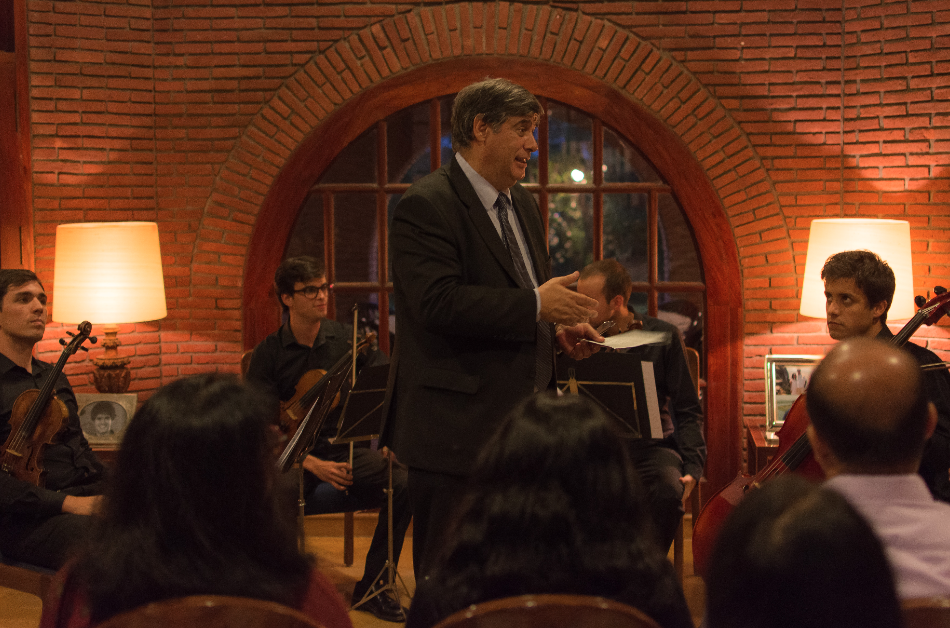An Evening with musicians from Portugal
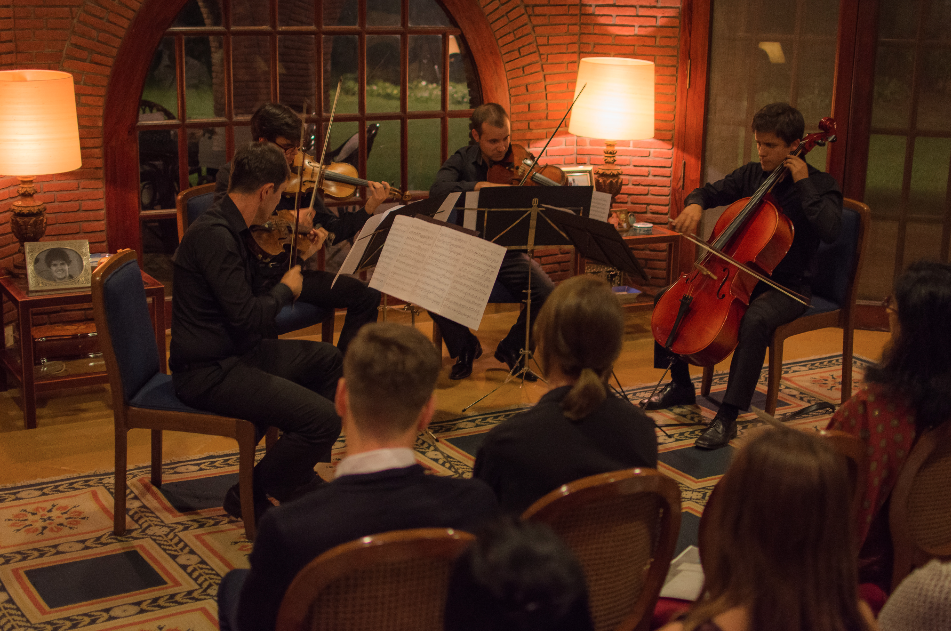
Cassia Avenue at Rajokri, New Delhi is not a common route for me. I reached way ahead of the scheduled concert time. Ambassador Joao da Camara and his wife Raquel Pereira da Camara asked me to wait at the drawing cum waiting room. The musicians would arrive shortly, they told me. “You can watch them rehearse”. To be honest I was quite taken in with the decor and the interiors of the room as well as the books and paintings that were on display. If anyone has watched the Anime Series ‘Nodame Cantabile’ based on the Manga by Tomoko Ninomiya, they would know the feeling that I am trying to talk about here. It was almost like a deja vu in real life. The moment reminded me of one of the episodes in the Paris Season, where Megumi Noda and her friends had gone to a royal palace for Nodame’s first recital, more precisely – a house concert themed around the works of Wolfgang Amadeus Mozart. Later, during the concert and also while conversing with the musicians, I realised how the repertoire was designed, keeping the temporality of the 18th century house-concerts at the backdrop. House concerts after all are a thing of the past! Therefore, reliving it would, in way, signify awakening the scenes and moods of that particular period.
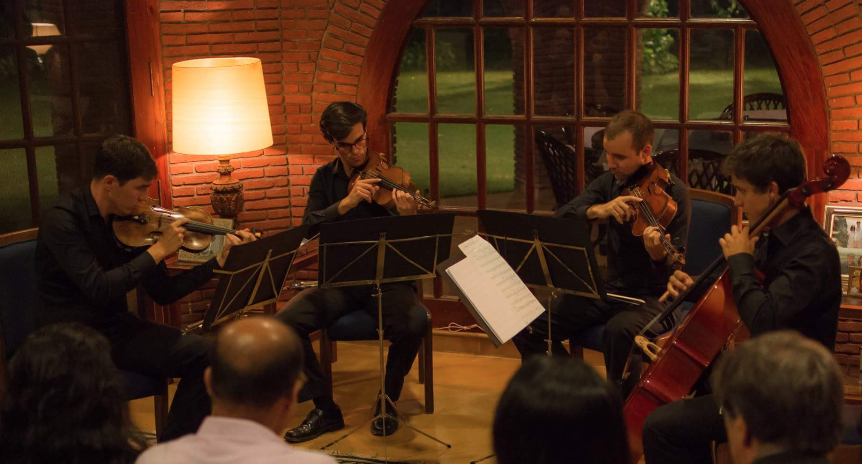
Tell us about this Indo-Portuguese exchange.
Vítor Mota, the Director of the Sinfonica Juvenil spoke about the youth orchestra’s first visit to India about 9 years ago. Fundação Oriente invited a wind trio to Bangalore and Goa to give concerts and master classes primarily because of the dearth of having a big tradition of Western Wind Instruments in India.
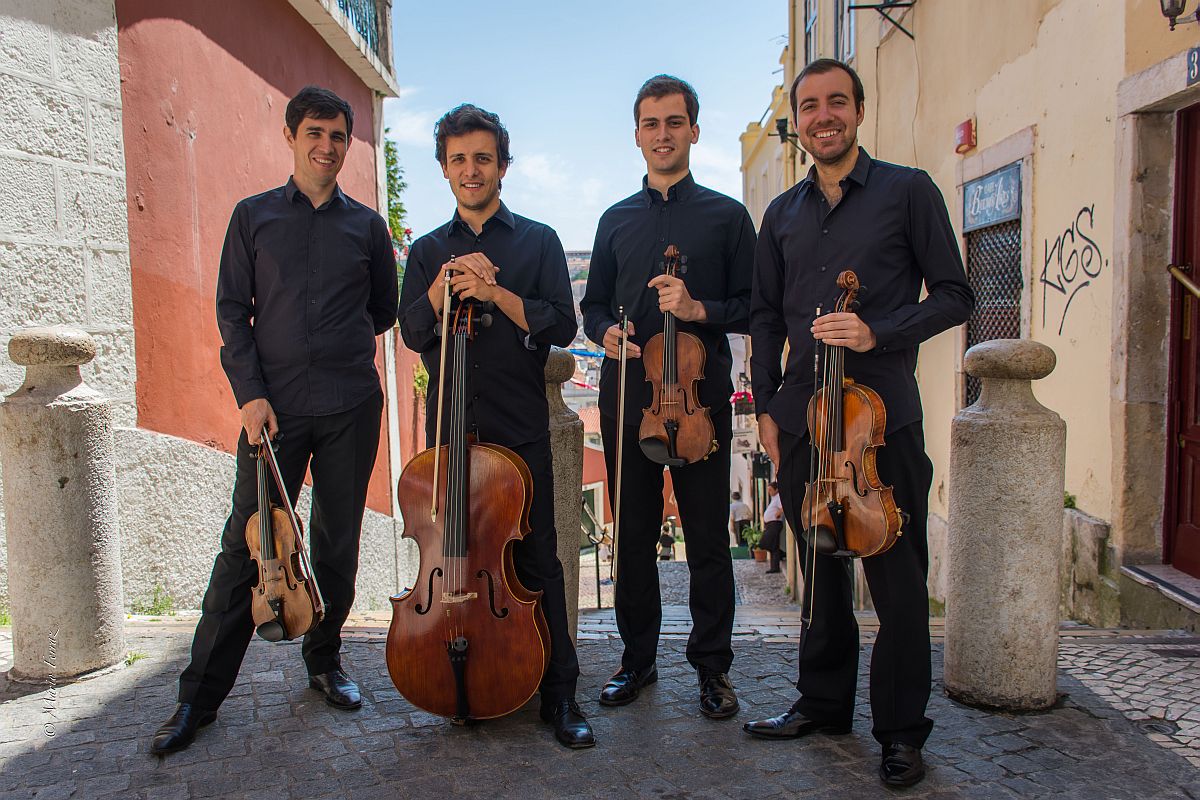
How about this year’s Tour?
We played concerts and gave master classes in Goa. There were 10 teachers who took the classes. The classes were spread over two days and the instruments were violin, cello and viola. In Bombay, we gave two concerts. One was at the NCPA and the other was at Dr. Bhau Daji Lad Mumbai City Museum. We are also playing two concerts in Delhi. We got invited by the Fundação Oriente for Goa but elsewhere, it has been our initiatives.
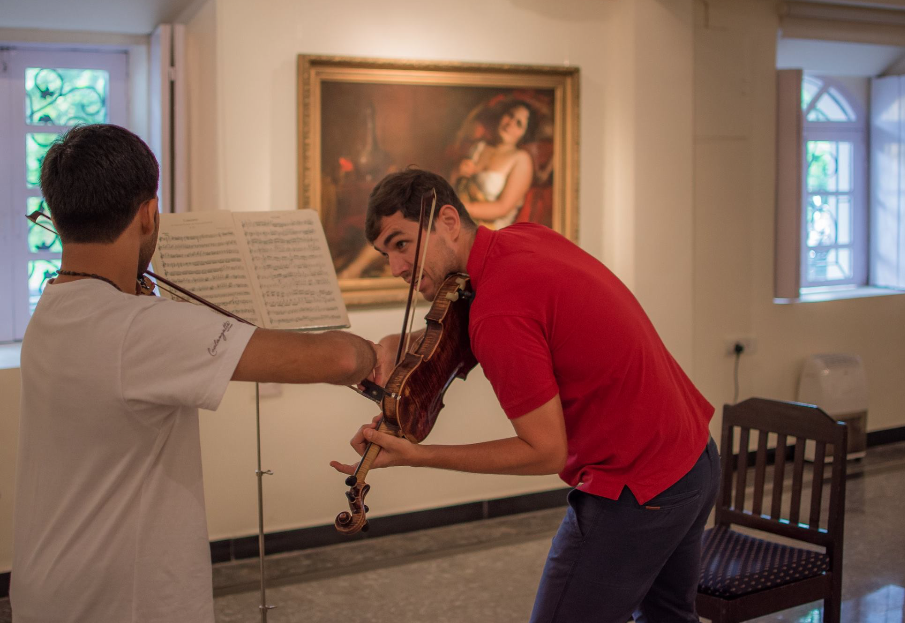
How was your experience during the master classes? What would you say about the level of musicality?
Pedro Serra Silva, the Cellist from the Youth quartet, elaborated on their teaching and performance experience in India.
We were really surprised to see the eagerness on the part of the students to gain knowledge. Teachers too were very inspired. Since the students were eager to learn, it was a great, fulfilling experience for us. About skill or level, I wasn’t expecting a very high level due to the presence of Indian Classical music. One thing I can say is that since they are so keen to discover, it will blossom into something beautiful. I remember few students having a very good ear and also immense qualities to learn and improve.
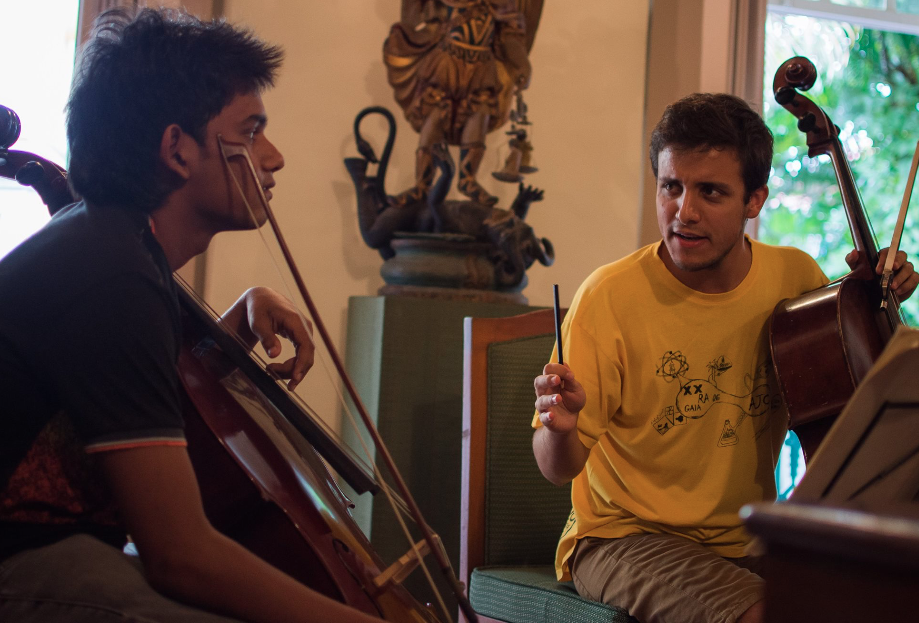
How were the concert experiences in the different cities so far?
We had two very different, but positive experiences. When we first arrived from Europe for our concert in Mumbai, there was a lot of humidity. By the end of the shows we had even acquired few groupies and fans, and felt like Rockstars! Mumbai was very friendly and Goa was special. In Goa, we performed at the Institute of Menezes Braganza, and at the Santa Monica Church with the Goa University Choir. It felt special as some of the audience members spoke Portuguese. Even some of the younger generation spoke the language. Collaborating on a music project in Goa comes to one’s mind easily because of our shared culture. In the press conference also, there was some kind of plan to form a partnership between the Goan and the Portuguese Institutions regarding music education. Personally, I am willing to teach in Goa.
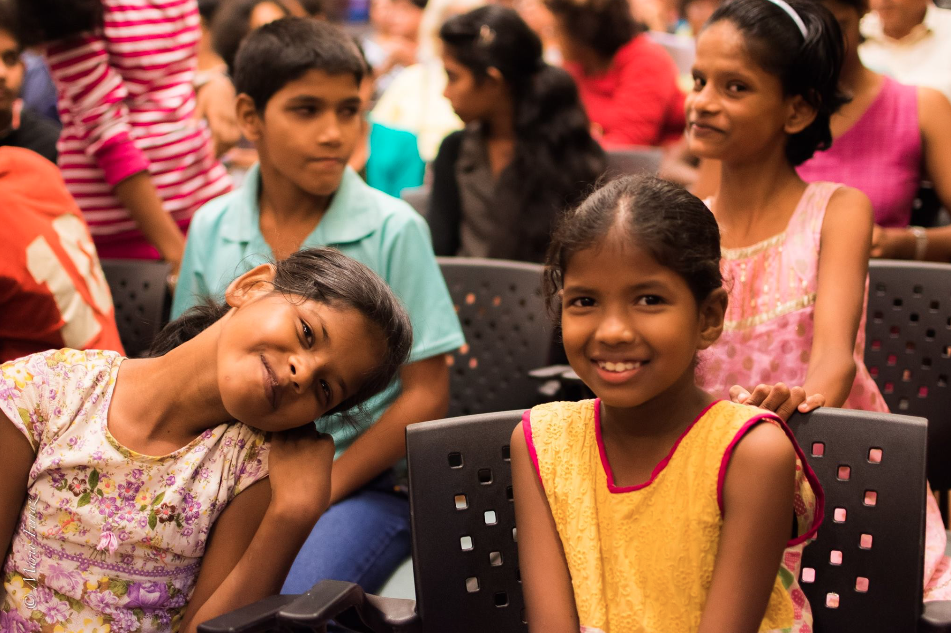
The repertoire for the evening house concert in Delhi had Mozart, Dvořák, Joly Braga Santos and José Vianna da Motta. The general mood of the music was exuberant and high-spirited, underscored by tender romanticism. The latter pertained to the Portuguese compositional style. It was very much suited to the likes of an 18th century house concert. To be specific, the sentiments were moulded in that direction. Apart from Mozart who was from the 18th century himself, the rest of the composers belonged to the 19th or the 20th century.
I end with a quote by the Portuguese ambassador- “It is a privilege for me to introduce these musicians and some of our Portuguese culture to the Indian audience.”
